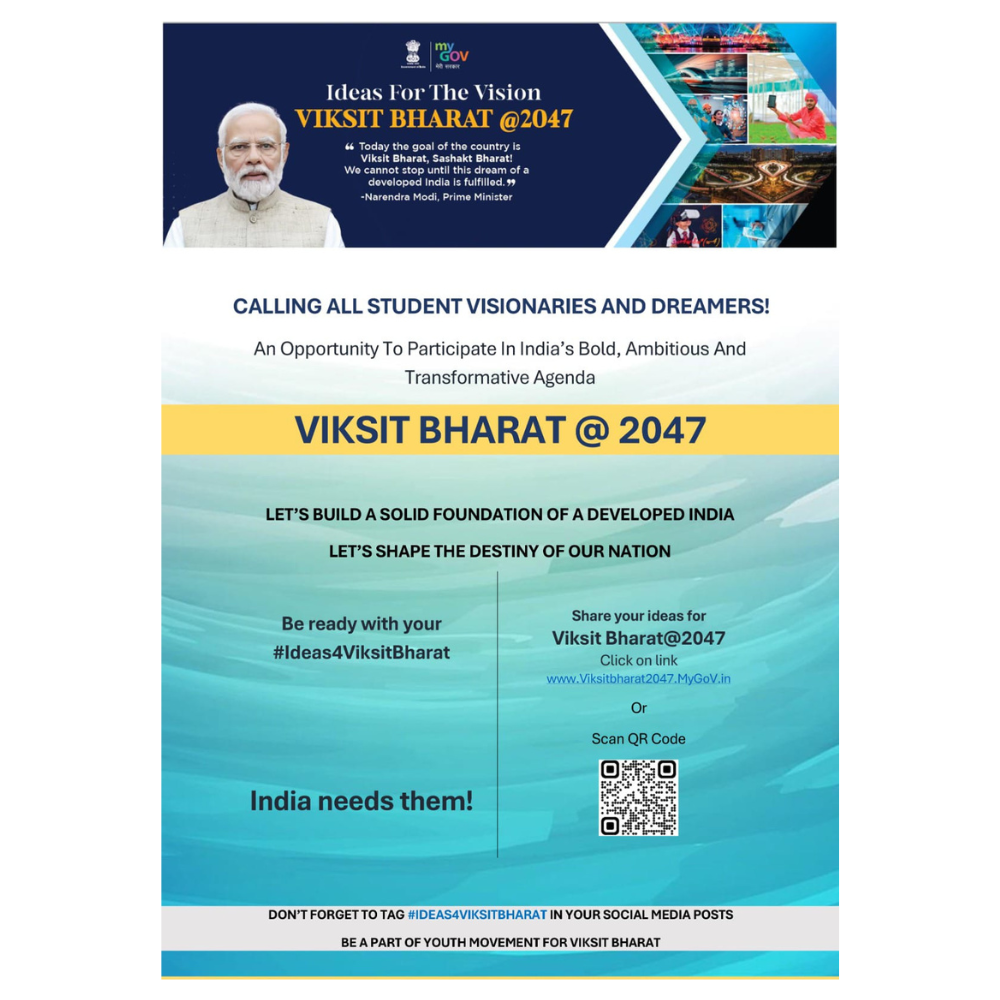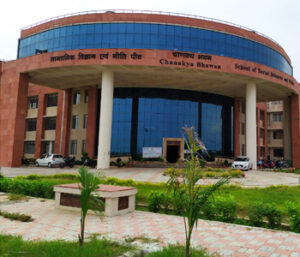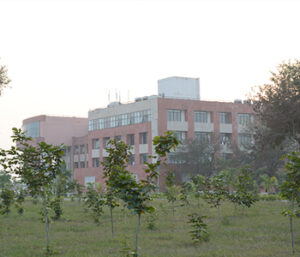


The Department of Political Studies (DPS) strives to cover all aspects of the discipline in the context of Traditional, Modern and Post-Modern approaches. It emphatically identifies the new problem areas of the society and tries to offer a solution through teaching and research. The Department proposes to put political studies into practice to deconstruct the developmental issues related to the study of Political Science and International Relations. In its inter-disciplinary approach, the Department provides an opportunity to combine both theory and practice. The Department incorporates the academic programme in Political Science and International Relations to equip the students with the philosophical and theoretical perspectives in the Indian and Western traditions along with their practical applications. It continues to nurture motivation in students for the advancement of political analysis at all levels: regional, national and international.
Department Overview
|
Established in |
2012 |
|
Employee Strength |
Faculty- 05 |
|
Student Strength |
Research Scholar & JRF- |
|
Placement 2021 |
x (tentative) |
|
Publications, Books & Patent |
Publications- |
News and Announcements
Important Links
-
Formats & Downloads
-
Archive
Board of Studies (BoS)
BoS is a statutory body for each department/centre, primarily responsible for syllabus design and regular update. As described in the Ordinance section 25.10,
The functions of the Board of Studies shall be:-- To recommend to the School Board, courses of studies offered by the Department/Centre and continue updating syllabus;
- To take all steps in accordance with the provisions of the Regulations about teaching and evaluation of various courses/programmes of the Department/Centre;
- To recommend to the School Board measures for the improvement of teaching and research in the Department/Centre;
- To constitute panels of experts to be considered for appointment as Examiners, Board of Examiners for various courses/academic programmes and M.Phil./Ph.D. thesis representing various specializations of Departments/Centres; and
- To perform such other functions as may be assigned to it by the School Board, the Academic Council, the Executive Council and the Vice-Chancellor.
Department Committee (DC)
As enshrined in the Ordinace-26, the Department/Centre Committee (DC/CC) shall consist of the Head of the Department/Centre, as Chairperson ex-officio, and all faculty members of the Department/Centre.
26.2 The Department/Centre Committee shall have the following functions, namely–- To make proposals to the Board of Studies on academic programmes concerning teaching and research, and the creation, specialization and abolition of teaching posts;
- To propose schemes for the maintenance and improvement of the standards of various programmes of study and research of the Department/Centre;
- To apportion the teaching and co-curricular work of the Department/Centre among the teachers thereof and monitor the proper execution thereof;
- To consider and decide on the assignment and utilisation of the space, equipment and other assets of the Department/Centre and other matters of general and academic interest of the Department/Centre;
- To consider and recommend perspectives and major thrust areas for research and to propose research projects to be taken up by the members of the Department/Centre, individually/collectively;
- To review and apprise the SRC/URC with the current status of research in Department/Centre;
- To suggest to SRC/URC norms related to qualifications and research experience of a faculty to be recognized as a research degree supervisor and to constitute Department/Centre Research Degree Committee (DRC/CRC);
- To suggest to University Admission, Teaching and Evaluation Committee (UATEC) on any issue related to admission, teaching, continuous evaluation in courses and students’ assessment of courses, offered by the Department/Centre to improve quality of education.
- To constitute such Committee(s) comprising members of the Department/Centre, and if necessary external experts, for framing and implementation of rules and regulations related to admission, teaching, continuous evaluation, maintenance of students’ records including alumni affairs as well as promotion of research and development; and
- To perform such other functions as may be assigned by the Ordinances or Regulations, or by the Vice- Chancellor/Dean/School Board from time to time.
Department Research Degree Committee (DRDC)
Departmental/Centre Research Degree Committee (DRDC/CRDC) deal with all matters connected with the Ph.D. Programme of the Department and report the matter to the University Research Degree Committee (URDC), as per University Ordinance-33. It consists of the Head of Department/Centre as Chairman and other faculties in the department.
Functions of DRDC/CRDC are as follows:- Allotment of Supervisor, Co-Supervisor, recording reasons for not admitting a candidate.
- Recommendation for extension of time for submission of thesis
- Recommendation to peruse a part of research outside the University
- Approval of the Course Work
- Assessment and Grading in Course Work
- Monitoring the research progress of the candidate
- Approval of Research plan proposal/language
- Sanction of duty leave to the Ph.D. candidate
- Assessment of Ph.D. work through pre-submission seminar
- Maintaining the record of research paper publications of the candidate
- 11 Recommendation of panel of experts for thesis evaluation
- Assessment of revised thesis for satisfactory compliance, if any
- Arrangement of Viva-voce in the absence of the supervisor
- Recommendation to waive the Viva-voce
Research Advisory Committee (RAC)
A Research Advisory Committee (RAC) is constituted for every research scholar admitted in PhD programme. The Committee would guide the research scholar to develop the study design and methodology of research and to To periodically review and assist in the progress of the research work of the research scholar. The committee shall have also have power to recommend the co-supervisor and cancellation of registration
Vision |
|
Mission |
|
The two year (four semesters) Post Graduate Programme is designed to equip the students with the philosophical and theoretical perspectives in the Indian and Western traditions along with their practical applications. It also aims to impart critical thinking and methodological skills of academic and action research.
- Objectives of the Program:
- The aim is to study a problem in the Indian, comparative, international, regional and local milieus. It also endeavours to inculcate among the students contextually appropriate sensibilities towards traditional, modern and postmodern approaches to the discipline of Political Science. The subject matter of Political Science lends itself to discussion and debate, theories and decision-making as well as policy-making can be evaluated in light of current events. In class, debate & discussions promote deeper insights and stronger evaluative skills among students. Students are encouraged to invest their intellectual energy in analyzing, and researching complex political issues because they know that their work will be graded. The learning outcomes of political science helps to make the study of politics relevant to the struggle for better world. Political science students deepen their comprehension of public policy through engaging with real world scenario with civic engagement process. Teaching and learning politics and more especially teaching public policy to students in a way that is engaging, informative and capable of building a range of competencies among students presents an ongoing challenge.
- Program Outcomes:
- Political science course paying special attention to simulations, structured debates and the case methods to contemporary political issues. Political Science teaching outcomes have shifted instructions from a simple teaching focus to more active student-centered learning. Active learning promotes collaboration between students and their instructors. It develops critical thinking; elicit discovery and the construction of knowledge. The study of politics is presented as a means by which to understand a variety of political processes and systems and behaviours, as well as the values and attitudes that underpin them. As Burnham has Stated “in many respects," politics is the junction subject of the social sciences, born out of history and philosophy, but drawing on the in-sights of economics and sociology, and to a lesser extent, the study of law, psychology and geography”. In general, critical thinking, as a means of explaining political phenomena, is a key learning outcome. It advances the concept of political learning with reference to cultivating political thinking, which may include developing an interest in politics. They learn what public and private interests are? As well as learning how to participate and deliberate in the political world, learning how to listen politically and finally, learning to judge the political world as intelligent performers and thoughtful spectator. One of the objectives of undertaking programs in politics and public policy is to encourage students to develop an interest in politics and to enable them to recognize that politics goes beyond that which provides the material for newspaper. Another politics and public policy learning outcome is to encourage students to distinguish between public and private interests. They also learn that how participation and deliberation can happen in the political world. An intrinsic part of participating and deliberation is the issue of learning how to listen politically and how to judge the political world as intelligent performers and thoughtful spectators as well as access to a plurality of perspectives that is not always possible in classrooms.
- Eligibility: Bachelor's Degree in any discipline from any recognised University with a minimum of 50% marks for General / OBC candidates and 45% marks for SC/ST / PWD candidates.
- Intake: 45
This course has been started by the Department of Political Studies, with the aim of facilitating research in Political Science and international relations. The course consists of coursework of one semester and writing of thesis in an area of Political Science and international relations under the supervision of the Department.
- Objectives of the Program:
- The aim is to study a problem in the Indian, comparative, international, regional and local milieus. It also endeavours to inculcate among the students contextually appropriate sensibilities towards traditional, modern and postmodern approaches to the discipline of Political Science. The subject matter of Political Science lends itself to discussion and debate, theories and decision-making as well as policy-making can be evaluated in light of current events. In class, debate & discussions promote deeper insights and stronger evaluative skills among students. Students are encouraged to invest their intellectual energy in analyzing, and researching complex political issues because they know that their work will be graded. The learning outcomes of political science helps to make the study of politics relevant to the struggle for better world. Political science students deepen their comprehension of public policy through engaging with real world scenario with civic engagement process. Teaching and learning politics and more especially teaching public policy to students in a way that is engaging, informative and capable of building a range of competencies among students presents an ongoing challenge.
- Program Outcomes:
- Political science course paying special attention to simulations, structured debates and the case methods to contemporary political issues. Political Science teaching outcomes have shifted instructions from a simple teaching focus to more active student-centered learning. Active learning promotes collaboration between students and their instructors. It develops critical thinking; elicit discovery and the construction of knowledge. The study of politics is presented as a means by which to understand a variety of political processes and systems and behaviours, as well as the values and attitudes that underpin them. As Burnham has Stated “in many respects," politics is the junction subject of the social sciences, born out of history and philosophy, but drawing on the in-sights of economics and sociology, and to a lesser extent, the study of law, psychology and geography”. In general, critical thinking, as a means of explaining political phenomena, is a key learning outcome. It advances the concept of political learning with reference to cultivating political thinking, which may include developing an interest in politics. They learn what public and private interests are? As well as learning how to participate and deliberate in the political world, learning how to listen politically and finally, learning to judge the political world as intelligent performers and thoughtful spectator. One of the objectives of undertaking programs in politics and public policy is to encourage students to develop an interest in politics and to enable them to recognize that politics goes beyond that which provides the material for newspaper. Another politics and public policy learning outcome is to encourage students to distinguish between public and private interests. They also learn that how participation and deliberation can happen in the political world. An intrinsic part of participating and deliberation is the issue of learning how to listen politically and how to judge the political world as intelligent performers and thoughtful spectators as well as access to a plurality of perspectives that is not always possible in classrooms.
- Eligibility: Master's Degree in any discipline with 55% in aggregate or its equivalent Grade B in UGC 7-point scale from any recognised University. A Relaxation of 5% of marks from 55 to 50% or equivalent relaxation of Grade for SC/ST/OBC (Non-creamy layer)/Differently abled candidates..
- Intake: Subject to availability of seats as notified



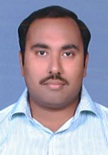
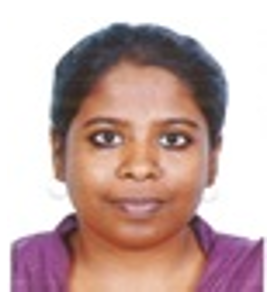

| S.No. | Research Scholar/JRF/Project staff | Photograph | Guide | Academic Qualification | Research Area | Achievement/Award /Publication |
|---|---|---|---|---|---|---|
| 1 | Nisha nisha@cusb.ac.in CUSB1901475004 |
Dr. Abhay Kumar | MA | Environment | Non | |
| 2 | RATNESH KUMAR YADAV(Ph.D Research Scholar) ratnesh@cusb.ac.in CUSB1701475007 |
Associate Professor, Dr. Alok Kumar Gupta | MA, MPhil | Impact of Geopolitics of South Asia on Contemporary Indo-Nepal bilateral Relations: A Critical Analysis | Research Work Published |
|
| 3 | Rajiv Chatterjee rajivchatterjee@cusb.ac.in CUSB1701475006 |
Dr. Sumit Kumar Pathak | MA | Total Revolution and Civil Society | Chatterjee Rajiv (2020) . State and Civil Society in India . Studies in Indian Place Names . Vol 40 . 6968 - 6972 . 03 . 02 . 2020 . | |
| 4 | RAVI RANJAN raviranjan@cusb.ac.in | Dr. Praveen Kumar | MA | Public Policy | ||
| 5 | DHARMENDRA KUMAR dharmendrakumar@cusb.ac.in CUSB1901475002 |
DR. PRANAV KUMAR MA | INTERNATIONAL RELATION RELATED TO AFRICA | |||
| 6 | Anupam Ravi anupamravi12@gmail.com CUSB1901475001 |
Dr. Sumit Kumar Pathak | MA | Public administration & public policy | NET Qualified | |
| 7 | SUNIL KUMAR roy.sunil.k@gmail.com CUSB1801475001 |
DR ABHAY KUMAR | MA | INTERNATIONAL RELATIONS | Kumar, S. (2019). On the Prospects of Coexistence between Israelis and Palestinians: An Indian Perspective. Jewish Political Studies Review, 30(3/4), 120-127. Retrieved May 15, 2021, from https://www.jstor.org/stable/26801120 | |
| 8 | Badri Sankar Das badrisankardash@gmail.com CUSB1701475002 |
Dr.Praveen Kumar, Associate professor | MPHIL, MA(Political Science) & MA(Mass Communication) | Women & Child Development, Tribal Studies, Rural Development Journalism, Media Law & Ethics, Political Sociology, State Politics, Indian Govt. & politics, Social Exclusion, Human Rights and New Media | Award : | |
| 9 | Ram Krishna Tripathi r.k.tripathi129@gmail.com CUSB1901475005 |
Dr. Abhay Kumar | pursuing Ph.D. | International Relation | 10 days Research Methodology Workshop | |
| 10 | Manoj Kumar mksinghsan62@gmail.com CUSB1901475003 |
Dr.Praveen Kumar | MA | Indian democracy and Dalit Women | no | |
| 11 | Niraj kumar roy88nk@gmail.com Cusb1701475005 |
Dr. Sumit kumar pathak | M. Phil | Political theory | Three | |
| 12 | Kundan Kumar kundan237@cusb.ac.in CUSB1701475004 | Dr Praveen Kumar | M.Phil | Social Justice and Indian Democracy: A Study of Bihar Mahadalit Mission | Publication: 05 Conference: 02 Research workshop: 02 |
|
| 13 | Kundan Kumar kundan237@gmail.com CUSB1701475004 |
Dr. Praveen Kumar | M.Phil | Social Justice and Indian Democracy: A Study of Bihar Mahadalit Vikas Mission | Publication: 05 Conference: 02 Workshop: 02 |
- Project
- Specific Research Areas
- Research Publications
E-Resources for Courses
|
Course Code |
Course Name |
Question papers (Previous Years) |
Notes and Presentations |
Video and Suggested readings |
Course Assessment Design - MA
- Semester –I
- Semester –II
- Semester –III
- Semester-IV
Gallery
Centre for Political Studies

